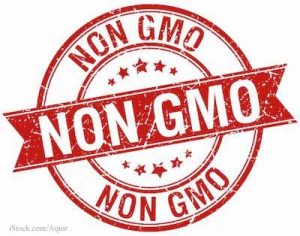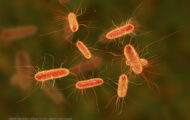Genetically engineered wheat is not approved for sale in the U.S. and many other countries, so it was an unwelcome surprise when a “volunteer” crop of it was found growing in an Oregon field. While major markets for U.S. wheat including Japan, Korea and Taiwan, have postponed imports as they continue to study the situation, U.S. Department of Agriculture (USDA) officials say there is no evidence that the GE wheat entered the market and there is no food safety of public health concern.
 USDA Office of Communications Director Matt Paul released a June 14 statement about the situation, describing it as an isolated incident. “On May 29, USDA announced that a small number of volunteer wheat plants in an Oregon field had tested positive for genetically engineered (GE) glyphosate-resistant wheat. Extensive testing confirmed the wheat as a variety – MON71800 – developed by Monsanto. The detection of this wheat variety does not pose a public health or food safety concern. Monsanto worked with the Food and Drug Administration (FDA) in 2004 to complete a voluntary food and feed safety consultation. Completion of the FDA consultation process means this variety is as safe as non-GE wheat currently on the market.”
USDA Office of Communications Director Matt Paul released a June 14 statement about the situation, describing it as an isolated incident. “On May 29, USDA announced that a small number of volunteer wheat plants in an Oregon field had tested positive for genetically engineered (GE) glyphosate-resistant wheat. Extensive testing confirmed the wheat as a variety – MON71800 – developed by Monsanto. The detection of this wheat variety does not pose a public health or food safety concern. Monsanto worked with the Food and Drug Administration (FDA) in 2004 to complete a voluntary food and feed safety consultation. Completion of the FDA consultation process means this variety is as safe as non-GE wheat currently on the market.”
The USDA began an investigation into how the unapproved appeared in an field on May 3 after an Oregon State University scientist notified USDA officials that plant samples tested positive for a protein that made them resistant to glyphosate, the main ingredient in Round-Up which Monsanto introduced in 1974.
“All information collected so far shows no indication of the presence of GE wheat in commerce. Investigators are conducting a thorough review. They have interviewed the person that harvested the wheat from this field as well as the seed supplier who sold the producer wheat seed; obtained samples of the wheat seed sold to the producer and other growers; and obtained samples of the producer’s wheat harvests, including a sample of the producer’s 2012 harvest. All of these samples of seed and grain tested negative for the presence of GE material. Investigators are continuing to conduct interviews with approximately 200 area growers,” Paul said in the statement.
The USDA has provided a validated DNA test method for detecting this specific GE variety to trading partners that have requested it. The agency said it will continue to provide information as it becomes available. Last week, the Center for Food Safety and wheat farmers in the Pacific Northwest filed a class action lawsuit against Monsanto for putting wheat farmers at risk.





Interesting, how the USDA can claim that the GMO wheat is not a safey issue. I doubt that it was ever tested for safety in humans, any more then the other GM foods. No tests for allergies to them, or other adverse health effects. And no tracking for any harm they may cause to our health. Without any labels, people can’t prove they ever ate them, so any reports of illnesses caused by GMOs, can be ignored. Sweetheart deal for the industry, but consumers are the major losers.